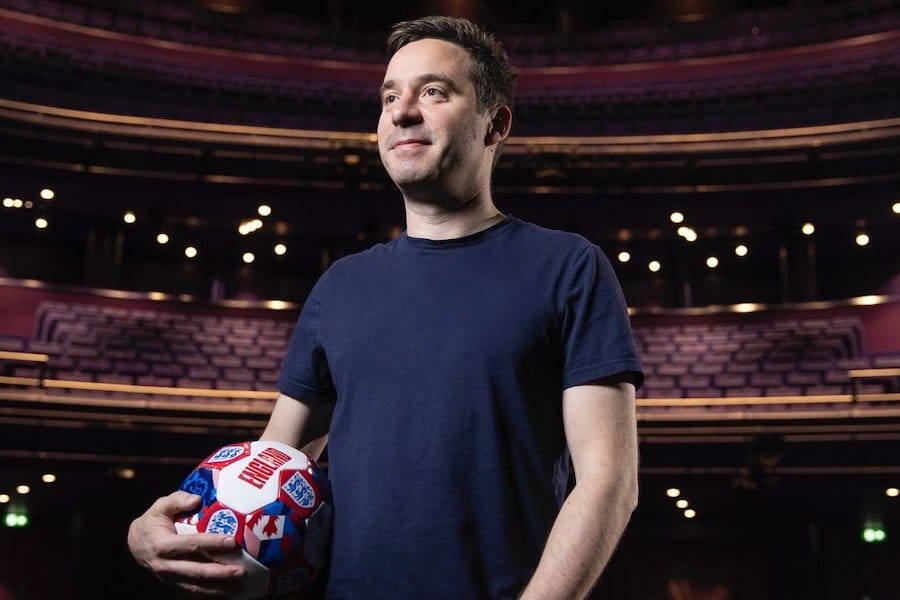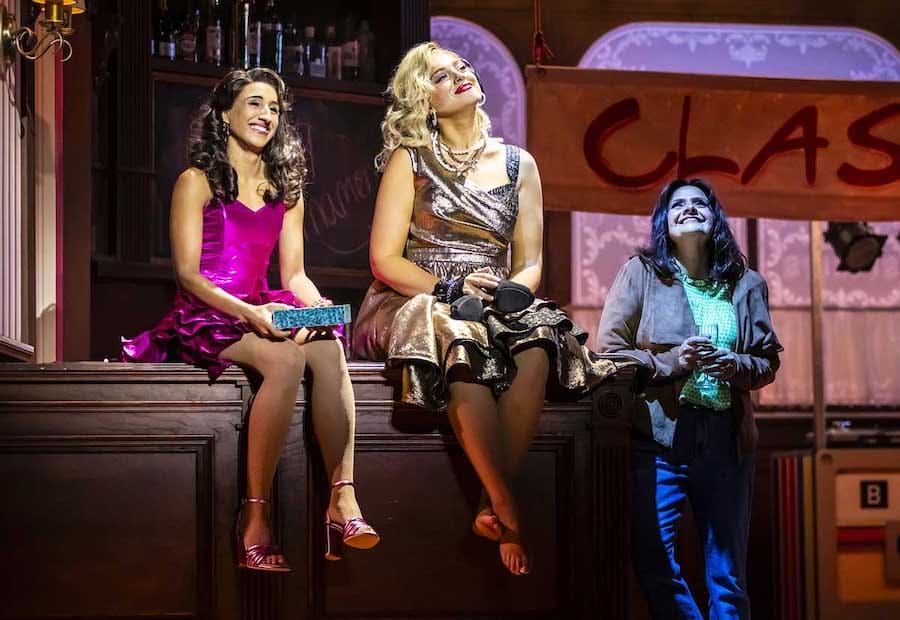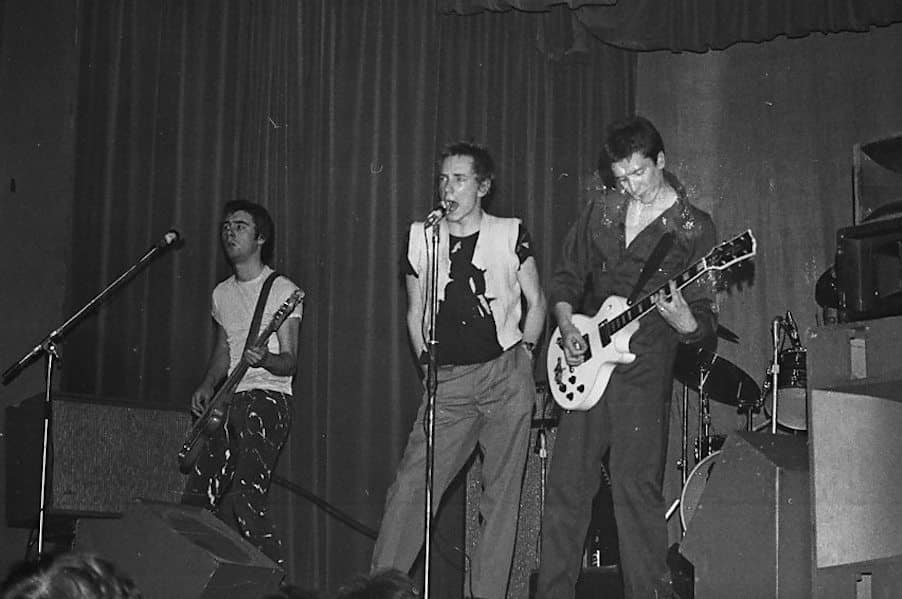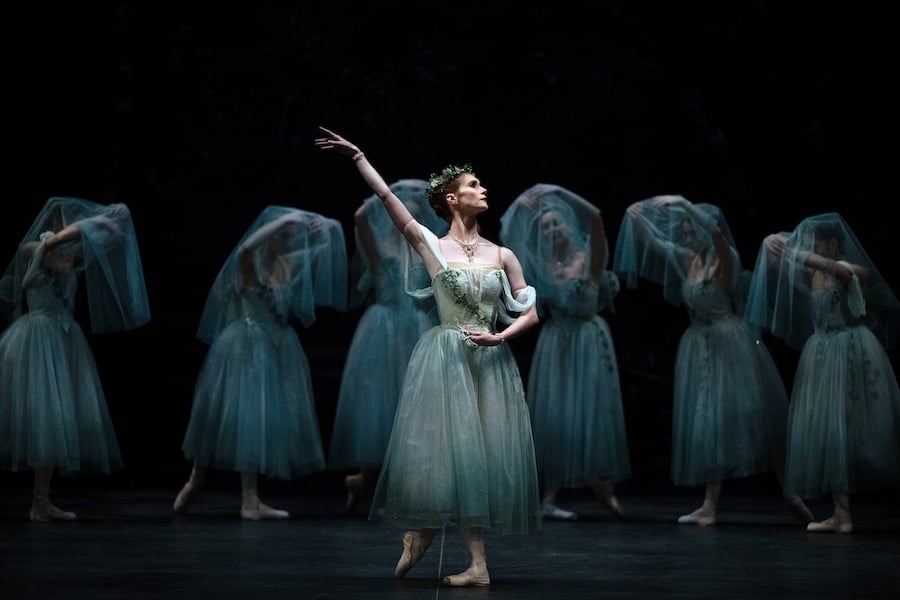Why you should see Dear England: the play that unveils our national identity through football
- Written by Thom Bamford
- Last updated 8 months ago
- City of Manchester, Featured, Sponsored, Theatre

Dear England shares a gripping narrative that dives deep into the heart of English football and our national identity.
It might seem on the face of it, an unusual crossover, football and theatre. Gareth Southgate? The bloke in the waistcoat?
But bear with us.
This is a fantastic play you don’t want to miss.
Directed by the acclaimed Rupert Goold and penned by Olivier Award-winning playwright James Graham, this National Theatre production has captured the imagination of audiences since its world premiere at the Olivier Theatre on 20 June 2023.
Following a sold-out run and record-breaking performances at the Prince Edward Theatre in London’s West End, “Dear England” is now set to mesmerise audiences in Salford at The Lowry from 29 May to 29 June 2025.
We sat down with James Graham, who wrote the play, to discuss why at the intersection of England football and theatre, we get a really interesting, almost incredible story.
Dear England at The Lowry

At its core, Dear England tells the story of the England men’s football team under the leadership of Gareth Southgate.
The narrative explores the psychological and emotional journey of the team and its manager, highlighting Southgate’s transformative approach to leadership.
The play is set against the backdrop of the nation’s longstanding passion for football, examining why England, the country that invented the beautiful game, has struggled with consistent success on the international stage.
Interview with James Graham about Dear England

Gareth Southgate and English football seem like unusual subjects for a play. What inspired you to bring Dear England to the theatre?
I think you’re right; on the surface, football and theatre don’t seem to overlap much. One of the primary missions of this project, even before considering the creative aspects, was to see if we could use this play to attract non-traditional theatre audiences—people who love sports but might not usually think of going to see a play. Can we get them into the theatre, make them feel comfortable, and excited by a story?
Similarly, for people who frequently attend the theatre but don’t think much about the England football team or football in general, we hoped to raise awareness about why it matters to so many people and what it says about us.
That was really exciting. On the surface, Gareth Southgate doesn’t seem like an obvious choice for a theatre subject. He’s very quiet, very decent. When you think of Shakespearean stories, they’re all about warriors who are very extroverted. Gareth is a very shy guy with a tough job.
However, I get excited about examining our national institutions, and I think the England football team is one that deserves theatrical exploration. What has been happening in the game over the past six years is so illuminating about where we are as a country—about masculinity, identity, nationhood, politics, mental health, and happiness. Whatever happens in that changing room with those 11 men reflects something much larger about who we are as a country.

What elements of the journey of the England men’s team under Gareth Southgate, did you find most compelling for creating a dramatic story?
Gareth has brought together different cultures and people from all parts of England.
Indeed, it’s exciting as a writer to take unlikely figures and make them protagonists in your play. He gets criticism for being too soft or too nice. People wonder if you can excel in elite sports if you’re nice, or if you need a ruthless streak. That was exciting to me. Our original actor, Joseph Fiennes, a great Shakespearean actor, famously played Shakespeare in a film. We talked a lot about how to make niceness big, how to make quiet dignity resonate in a massive theatre. I think we succeeded.
Gareth’s impact is huge, but not in the obvious, loud ways. Gareth speaks openly and eloquently about his trauma, especially the incident in 1996 when he missed a crucial penalty.
That moment defined him before he became an England manager. He has reflected on why he missed, why his fear took over, and what it did to him and the nation. He has used that experience to help younger players handle pressure and to encourage fans to enjoy the game more, even when losing. I find all that very interesting.
Football is often described as more than just a game, being deeply intertwined with cultural identity. How did you approach depicting this cultural resonance in “Dear England”?
We examined players like Harry Kane and Bukayo Saka, asking why they perform better for their clubs than for the national team. What is it about Englishness that sometimes hinders them?
You explore these themes through characters.
Gareth did things to unlock this problem, like workshops on national identity and the history of England, getting players to own their identity in a way they hadn’t before.
He also brought in psychologists like Pippa Grange to help players understand and cope with fear. This approach has transformed how the team performs and feels to us as fans.
Given the play’s success and its impact on audiences, what feedback or reactions from viewers have surprised or moved you the most?
We’ve had loads. It’s not just me; it’s the entire production team. Hearing from people who brought family members who wouldn’t normally come to the theatre, and seeing them enjoy it, cry, or dance at the end, is incredibly moving and reaffirming.
That’s why we’re bringing it back, especially outside of London, to make it accessible to more people. Pitching a football play in Manchester seems ideal because of its history, but also comes with immense pressure. We hope people will enjoy it!

Why should people come and see this play?
It’s an incredible and moving story about national identity. It’s hopeful and positive, showcasing one of the few areas of national life where real progress has been made.
I hope non-traditional theatre audiences will come because they love football and know the show will matter to them.
Those who don’t think they like football will learn about an incredible story of people who did something remarkable. The play has emotional scale and spectacle, raising questions about who we are and why we’re here.
England at the Euros 2024
As the nation anticipates the drama of UEFA EURO 2024, “Dear England” promises to evolve its script to reflect the outcomes and impact of this key European championship. If you are looking for a place to watch it this summer – we’ve got plenty of suggestions.
This living, breathing play offers a unique and timely reflection on the role football plays in English society.
Director of the National Theatre, Rufus Norris, aptly describes it as “a captivating examination of football, leadership, and English identity that cuts straight to the heart of our nation’s psyche.”
Trying something new
Dear England has already welcomed thousands of people, many of whom had never seen a play before. So why not join the crowd and try something different?
This production not only captures the essence of football’s drama and excitement but also introduces theatre to a broader audience, making it a cultural event that transcends traditional boundaries.
In many ways, like the beautiful game does.
You can buy tickets to see Dear England at The Lowry by clicking here
- This article was last updated 8 months ago.
- It was first published on 14 June 2024 and is subject to be updated from time to time. Please refresh or return to see the latest version.
Did we miss something? Let us know: [email protected]
Want to be the first to receive all the latest news stories, what’s on and events from the heart of Manchester? Sign up here.
Manchester is a successful city, but many people suffer. I Love Manchester helps raise awareness and funds to help improve the lives and prospects of people across Greater Manchester – and we can’t do it without your help. So please support us with what you can so we can continue to spread the love. Thank you in advance!
An email you’ll love. Subscribe to our newsletter to get the latest news stories delivered direct to your inbox.
Got a story worth sharing?
What’s the story? We are all ears when it comes to positive news and inspiring stories. You can send story ideas to [email protected]
While we can’t guarantee to publish everything, we will always consider any enquiry or idea that promotes:
- Independent new openings
- Human interest
- Not-for-profit organisations
- Community Interest Companies (CiCs) and projects
- Charities and charitable initiatives
- Affordability and offers saving people over 20%
For anything else, don’t hesitate to get in touch with us about advertorials (from £350+VAT) and advertising opportunities: [email protected]

The Social Studio offers fun and friendship for all at Emmaus Mossley

Play ‘This Kind of Black’ returns to tell a vital Moss Side story




















